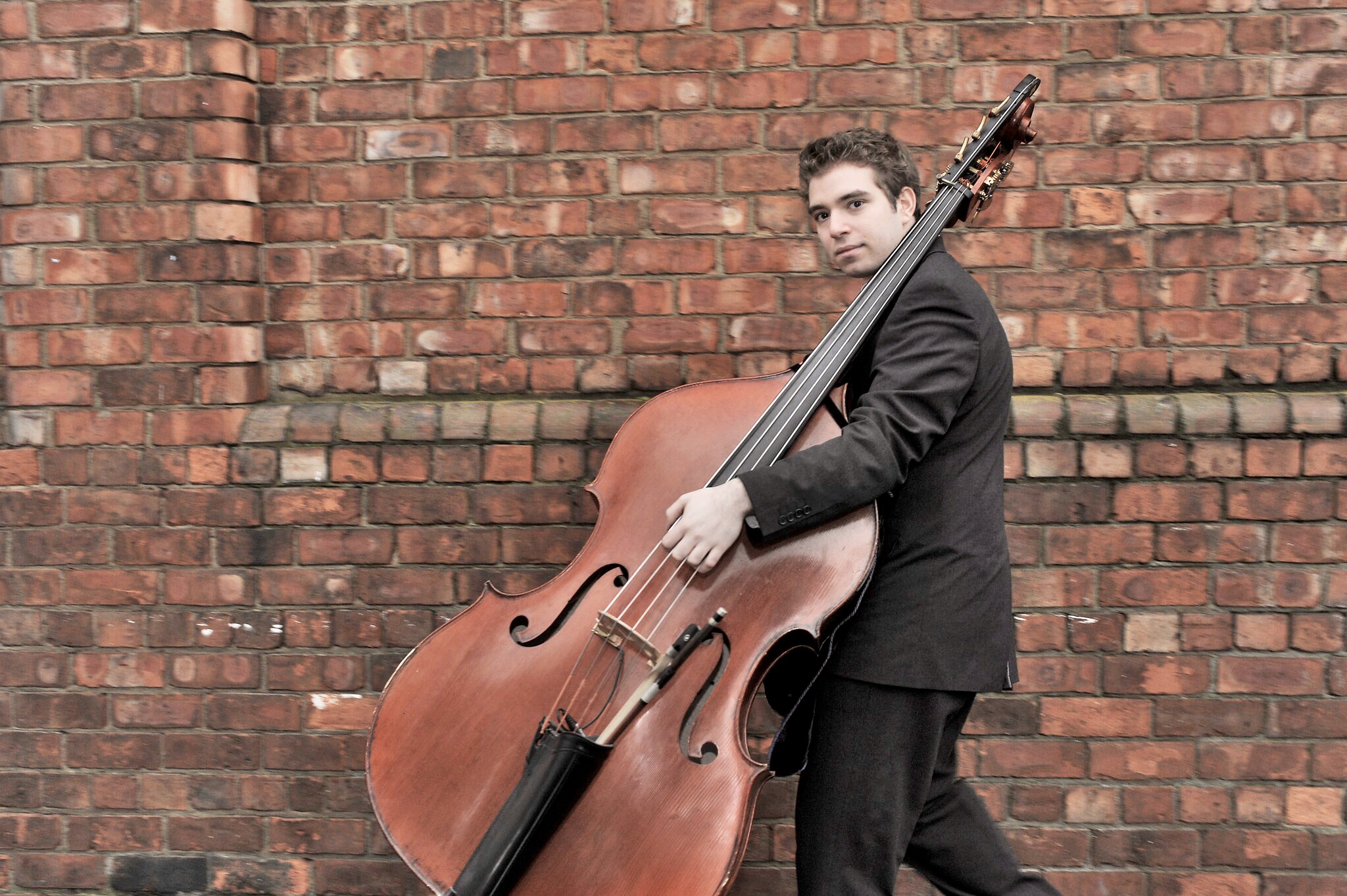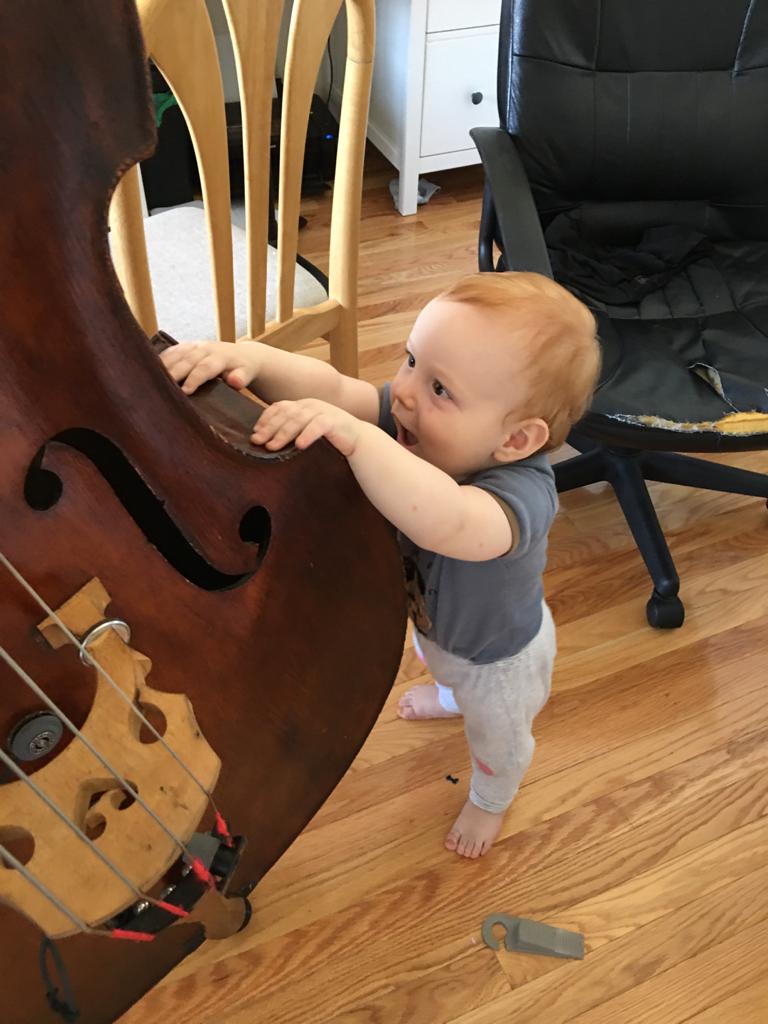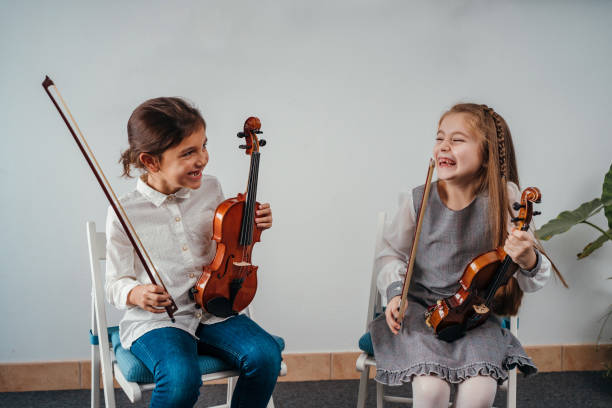Not so long ago among musical instruments the double bass was classed as an ‘endangered species’. Here in Scotland bass players have a great camaraderie -they all seem to know one another and are generally on first name terms. Members of this friendly coterie are invariably given to helping one another out – the borrowing and lending of instruments, stools, and bows is par for the course.
We have a spare room in our home which can variously function as a playroom, a dining room, or a spare bedroom. Latterly, we’ve used it as a practice room for music. Although it’s not a big space we can just about squeeze in a group of amateur musicians and their stands, provided they leave their cases outside. However, the floor space is severely curtailed if extra double basses come to stay.
In the summer months the city of Edinburgh is awash with music festivals – both classical and jazz. Musicians participating in a series of concerts will often tag a Scottish holiday to the end of their work commitments. Since they are already in Scotland, why not take advantage of that to go hill-walking in the Highlands, visit distilleries, or even island-hop in the Hebrides? Their only problem is: What shall I do with my double bass? Light bulb moment: Of course, I’m sure I can leave it with Andrew Robb!
So perchance, when I answer the doorbell, there is a polite chap on the doorstep, toting a large instrument in its padded case. I vaguely recognise him as someone my son has stayed with in London when he travelled down for a gig one time but had nowhere to stay for the night. The polite chap says: I’m really sorry to trouble you but Andy suggested I might leave my bass with you while I travel up north with my girlfriend. I should be back next week. Of course I invariably acquiesce- it would be churlish not to, and I’m aware of needing to return the favour. Besides, it’s good to know that Andrew has such nice friends.
If you look at the image featured for this blog, you’ll see what our practice room looked like after I had answered the doorbell to several more of Andy’s nice friends!


 Jazz bassists stand to play pizzicato, and in continental Europe classical double bass players also play standing up, often draped over their instruments. British players, however are usually seated on stools. The stool has its own problematic issues . For a start it needs to be taken to the music venue along with the instrument – massively inconvenient on public transport. Secondly, players can’t merely perch anywhere – the stool need to be of suitable height for their frame. A petite female player will need a smaller stool than a tall, burly man. Many players also nurse personal preferences – comfort padding, back-rest, easily foldable, etc., especially in their later years.
Jazz bassists stand to play pizzicato, and in continental Europe classical double bass players also play standing up, often draped over their instruments. British players, however are usually seated on stools. The stool has its own problematic issues . For a start it needs to be taken to the music venue along with the instrument – massively inconvenient on public transport. Secondly, players can’t merely perch anywhere – the stool need to be of suitable height for their frame. A petite female player will need a smaller stool than a tall, burly man. Many players also nurse personal preferences – comfort padding, back-rest, easily foldable, etc., especially in their later years.

